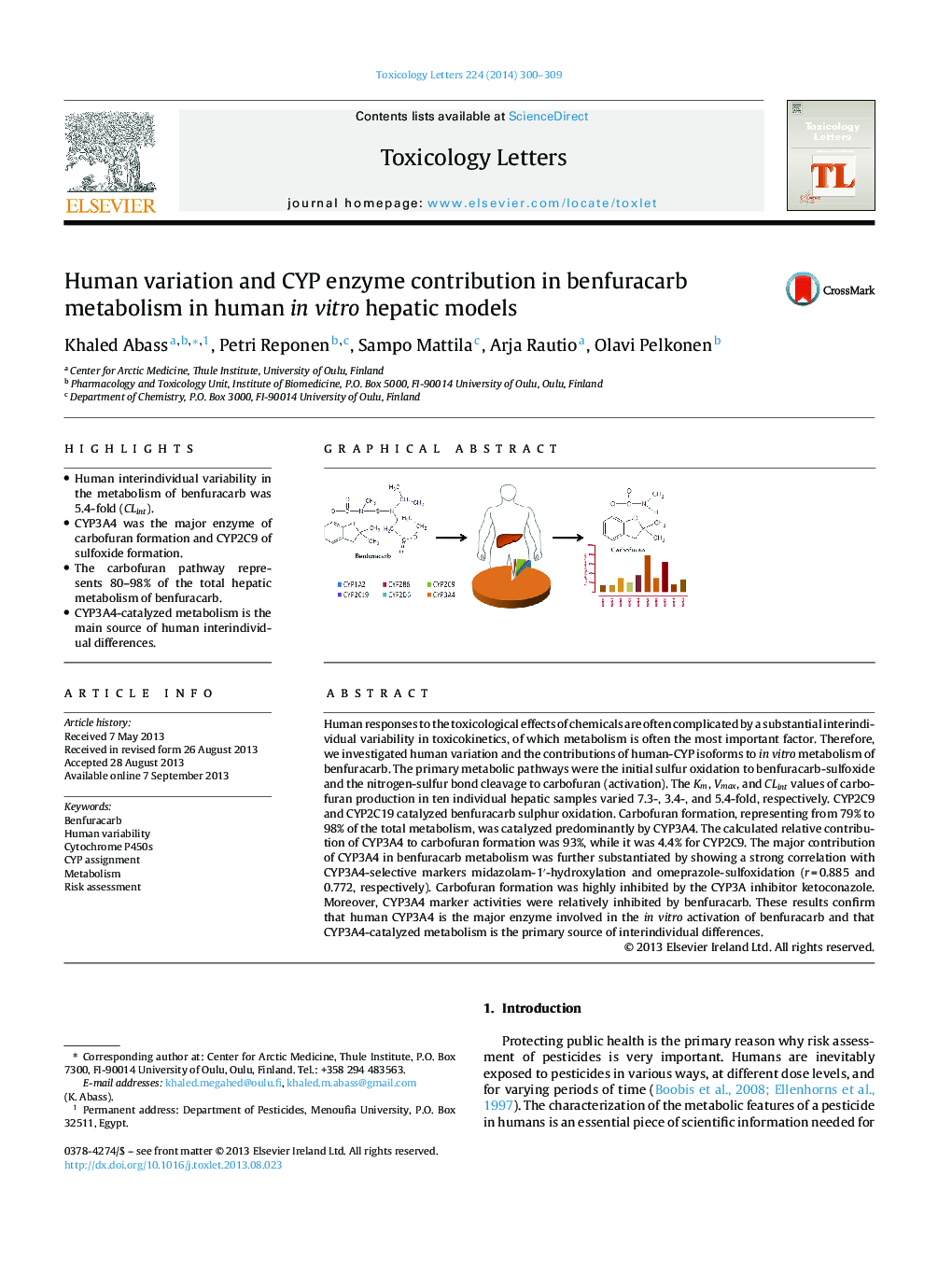| کد مقاله | کد نشریه | سال انتشار | مقاله انگلیسی | نسخه تمام متن |
|---|---|---|---|---|
| 5860439 | 1133185 | 2014 | 10 صفحه PDF | دانلود رایگان |

- Human interindividual variability in the metabolism of benfuracarb was 5.4-fold (CLint).
- CYP3A4 was the major enzyme of carbofuran formation and CYP2C9 of sulfoxide formation.
- The carbofuran pathway represents 80-98% of the total hepatic metabolism of benfuracarb.
- CYP3A4-catalyzed metabolism is the main source of human interindividual differences.
Human responses to the toxicological effects of chemicals are often complicated by a substantial interindividual variability in toxicokinetics, of which metabolism is often the most important factor. Therefore, we investigated human variation and the contributions of human-CYP isoforms to in vitro metabolism of benfuracarb. The primary metabolic pathways were the initial sulfur oxidation to benfuracarb-sulfoxide and the nitrogen-sulfur bond cleavage to carbofuran (activation). The Km, Vmax, and CLint values of carbofuran production in ten individual hepatic samples varied 7.3-, 3.4-, and 5.4-fold, respectively. CYP2C9 and CYP2C19 catalyzed benfuracarb sulphur oxidation. Carbofuran formation, representing from 79% to 98% of the total metabolism, was catalyzed predominantly by CYP3A4. The calculated relative contribution of CYP3A4 to carbofuran formation was 93%, while it was 4.4% for CYP2C9. The major contribution of CYP3A4 in benfuracarb metabolism was further substantiated by showing a strong correlation with CYP3A4-selective markers midazolam-1â²-hydroxylation and omeprazole-sulfoxidation (r = 0.885 and 0.772, respectively). Carbofuran formation was highly inhibited by the CYP3A inhibitor ketoconazole. Moreover, CYP3A4 marker activities were relatively inhibited by benfuracarb. These results confirm that human CYP3A4 is the major enzyme involved in the in vitro activation of benfuracarb and that CYP3A4-catalyzed metabolism is the primary source of interindividual differences.
Journal: Toxicology Letters - Volume 224, Issue 2, 13 January 2014, Pages 300-309